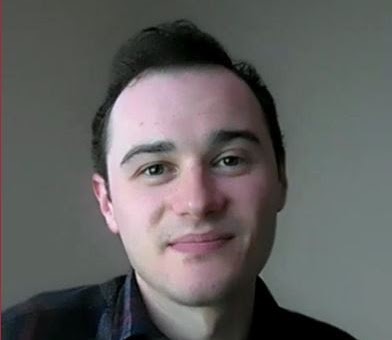About us
We are a team of researchers and educational practitioners, developing
best-practice teaching and assessment methods, combined with
cutting-edge scientific research.
For general enquiries, please contact:
Executive Team
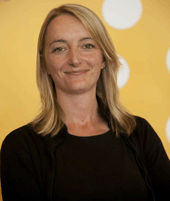
Prof Manon Jones, Director manon.jones@bangor.ac.uk
Manon Jones is a Professor in the School of Human and Behavioural Sciences at Bangor University. Her research is in the cognitive(neuro) science of reading and language, with a particular focus on skilled adult reading, developmental dyslexia, and biliteracy. She is particularly interested in elucidating the cognitive skills that enable some readers to become highly fluent, whereas others never attain similar levels of fluency despite being highly intelligent and articulate. As well as conducting experiments to investigate these issues in her lab, Prof Jones is the Principle Investigator of the Remote Instruction of Language and Literacy (RILL) project (www.rillresearch.org), a programme designed both to assist primary-aged children in remote learning during the lockdown periods, and to catch up on language and literacy skills in the classroom.

Mrs Joanna Dunton, M Ed, AMBDA, Director of Teaching j.dunton@bangor.ac.uk
Mrs Dunton’s has taught children from a wide range of ages and settings over the course of her career, including in special schools and FE colleges. She joined the Miles Dyslexia Centres teaching team after completing the AMBDA course in Bangor, subsequently going on to become the Director of Teaching for the Centre. She is the module leader for the BDA accredited Masters courses delivered at the School of Education, Bangor University. She is currently a serving member of the BDA Accreditation Board.
Dr Cameron Downing, c.downing@leedstrinity.co.uk
Dr Downing is a lecturer at Leeds Trinity University and an associate of the Miles Dyslexia Centre. He is interested in how we learn to read and write and what happens when we struggle to do so. This interest spans three related areas including (a) the development of spelling and handwriting, (b) disorders which impair our ability to learn to write (e.g., dyslexia, developmental coordination disorder, and dysgraphia), and (c) (remote) intervention of literacy difficulties.
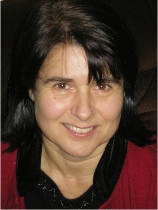
Dr Marketa Caravolas, Reader in Psychology m.caravolas@bangor.ac.uk
Dr Caravolas is an Associate Professor in Psychology at Bangor University, and she directed the Miles Dyslexia Centre from 2008 to 2014. Her research interests are in literacy development and its disorders and her scholarship spans theory and practice. She focuses on developmental psycholinguistics and early literacy, phonological and spelling development in the context of alphabetic literacy, and a special feature of her work is on cross-linguistic investigations of language-general and language-specific factors in reading and spelling development in typical and dyslexic populations. She has also created comprehensive batteries for the assessment and diagnosis of reading and spelling difficulties in the Czech and Slovak languages, and is currently working with colleagues on a large multi-language assessment battery of early literacy (MABEL), which includes parallel literacy-related measures in English, French, Spanish, Czech, Slovak and Welsh.

Kelly Edwards, kelly.edwards@bangor.ac.uk
Kelly Edwards is a long standing member of the team, having joined over 15 years ago, and is responsible for the day to day running of the Centre. The experience she has gained enables her to provide advice, guidance and information on the wide range of services that we offer. Kelly also manages and oversees the Assessment and Teaching Service, coordinating and booking the appointments for assessments, teaching and consultations; she works closely with our Specialist Teachers, Specialist Assessors and Educational Psychologists to ensure we deliver the best service that we can offer.

Ruth Elliott, LEAPS Co-ordinator ruth.elliott@bangor.ac.uk
Ruth is the co-ordinator for the LEAPS programme for the Miles Dyslexia Centre. LEAPS is a course for children who are struggling with their literacy skills to develop their ability with reading and writing. She will be working with volunteers and teaching staff to deliver courses for groups of pupils in KS2 and KS3 who need a boost with their literacy skills. The LEAPS programme is sponsored and supported by Clogau Gold https://www.clogau.co.uk
Teaching & Assessment Team
Mrs Nicola Cameron
Ms Sophie Cantrell
Mrs Shari Cliffe
Mrs Elizabeth DuPre
Ms Ruth Elliott
Ms Joanne Gordon
Mrs Cain Griffith
Mrs Rosie Highstead
Mr Geran Hughes
Mrs Sian Lloyd Jones
Miss Susan Lloyd-Williams
Mrs Anne Littlewood
Dr Anna McCormack-Colbert
Mrs Susan Peace
Mrs Danielle Peevor
Mrs Lois Pierce-Jones
Mrs Dorreen Roberts
Mrs Susan Sullivan
Mrs Gaynor Taylor
Mrs Alyson Walsh
Mr Caspar Wynne
Dr Fiona Zinovieff
Research Associates

Prof Manon Jones, Professor in Psychology manon.jones@bangor.ac.uk
Manon welcomes informal enquiries from prospective PhD students interested in projects related to the cognitive and neurocognitive underpinnings of reading, dyslexia, language production and bilingualism. Please submit a draft research proposal (1–2 pages) to the above email address.

Dr Marketa Caravolas, Reader in Psychology m.caravolas@bangor.ac.uk
My main research interests are in literacy development in typical populations and in groups with Specific Learning Difficulties, especially dyslexia. Much of my work includes longitudinal and cross-linguistic designs in monolingual and bilingual learners. A number of my research projects have led to the development of standarised test batteries for the assessment of children’s literacy skills in languages including English, Czech, Slovak, Spanish and Welsh.
I work with researchers in the UK as well as in a number of countries in Europe and North America, and have headed up a wide variety of externally-funded, international projects pertaining to literacy development and its disorders.

Prof Debbie Mills, Professor in Psychology d.l.mills@bangor.ac.uk
Brain and language development, Williams syndrome, interactions between genes, brain, and behaviour.
Professor Debbie Mills is a member of the Language, bilingualism, and cognitive development and Social Neuroscience Research groups.

Dr Gary Oppenheim, Lecturer in Psychology g.m.oppenheim@bangor.ac.uk
I use computational modeling, along with behavoural and neurophysiological laboratory experiments and cognitive neuropsychological methods to reverse engineer the architectures and algorithms underlying language production. Much of my current work focuses on word learning and word retrieval. A second line of research considers the little voice that is supposed to be in your head: inner speech.
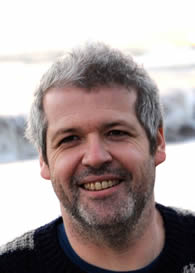
Prof Guillaume Thierry, Professor of Cognitive Neuroscience g.thierry@bangor.ac.uk
Using experimental psychology and electroencephalography, Guillaume Thierry studies language comprehension in the auditory and visual modalities, and mainly the processing of meaning by the human brain, i.e., semantic access. Since he started his career at Bangor University in 2000, Professor Thierry has investigated a range of themes, such as verbal/non-verbal dissociations, visual object recognition, colour perception, functional cerebral asymmetry, language-emotion interactions, language development, developmental dyslexia, and bilingualism. Since 2005, Prof. Thierry’s has received funding form the BBSRC, the ESRC, the AHRC, the European Research Council, and the British Academy to investigate the integration of meaning in infants and adults at lexical, syntactic, and conceptual levels, using behavioural measurements, event-related brain potentials, eye-tracking and functional neuroimaging, looking at differences between sensory modalities, different languages in bilinguals, and coding system (verbal / nonverbal). Prof. Thierry’s core research question is how the human brain crystallises knowledge and builds up a meaningful representation of the world around it. He now focuses on linguistic relativity and the philosophical question of mental freedom.

Dr Marie-Josephe Tainturier, Senior Lecturer in Psychology m.j.tainturier@bangor.ac.uk
The main goal of my research programme is to contribute to a better understanding of the psychological and neural mechanisms that underlie language processing in neuro-typical populations as well as their breakdown in neurological conditions. Within the field of written language processing I am best known for my work using cognitive neuropsychological methods, that is, analyses of the performance of brain-damaged individuals, to inform models of normal cognitive function, particularly with regards to written language. Over the years, I have advanced knowledge on a number of important theoretical questions in this field including (a) the role of phonology in written word production, (b) the nature of sublexical spelling processes (i.e., those used to generate plausible spellings for new words) (c) the relationship between lexical (memorised) and sublexical processes in spelling, (d) the structure of orthographic representations (i.e., the mental representation for units smaller than the word), (e) the relationship between reading and spelling processes. In addition to my work with adult speakers, a strong component of my research programme relates to the acquisition of reading and spelling and on the cognitive deficits responsible for developmental dyslexia.
The greatest originality and strength of my research programme is that it seeks to answer some fundamental questions about language processing by gathering complementary evidence from the study of different populations (brain-damaged patients, healthy adults, and children), using different methodologies (e.g., reaction time studies, corpus analysis, ERPs, fMRI, tDCS) and involving different languages (mostly English, Welsh, and French).
In the past few year, my work has focused more particularly on the interactions between language systems in bilingualism (mostly Welsh-English), on the neural representation of multiple languages, and on second language learning. As part of this research, I have created theoretically motivated protocols for the assessment and rehabilitation of language disorders in Welsh-English bilingual adults with brain-damage. Thanks to an ongoing collaboration with the Speech and Language Therapy services of BCUHB, I am expanding the impact of this work to benefit clinicians nationally and internationally.
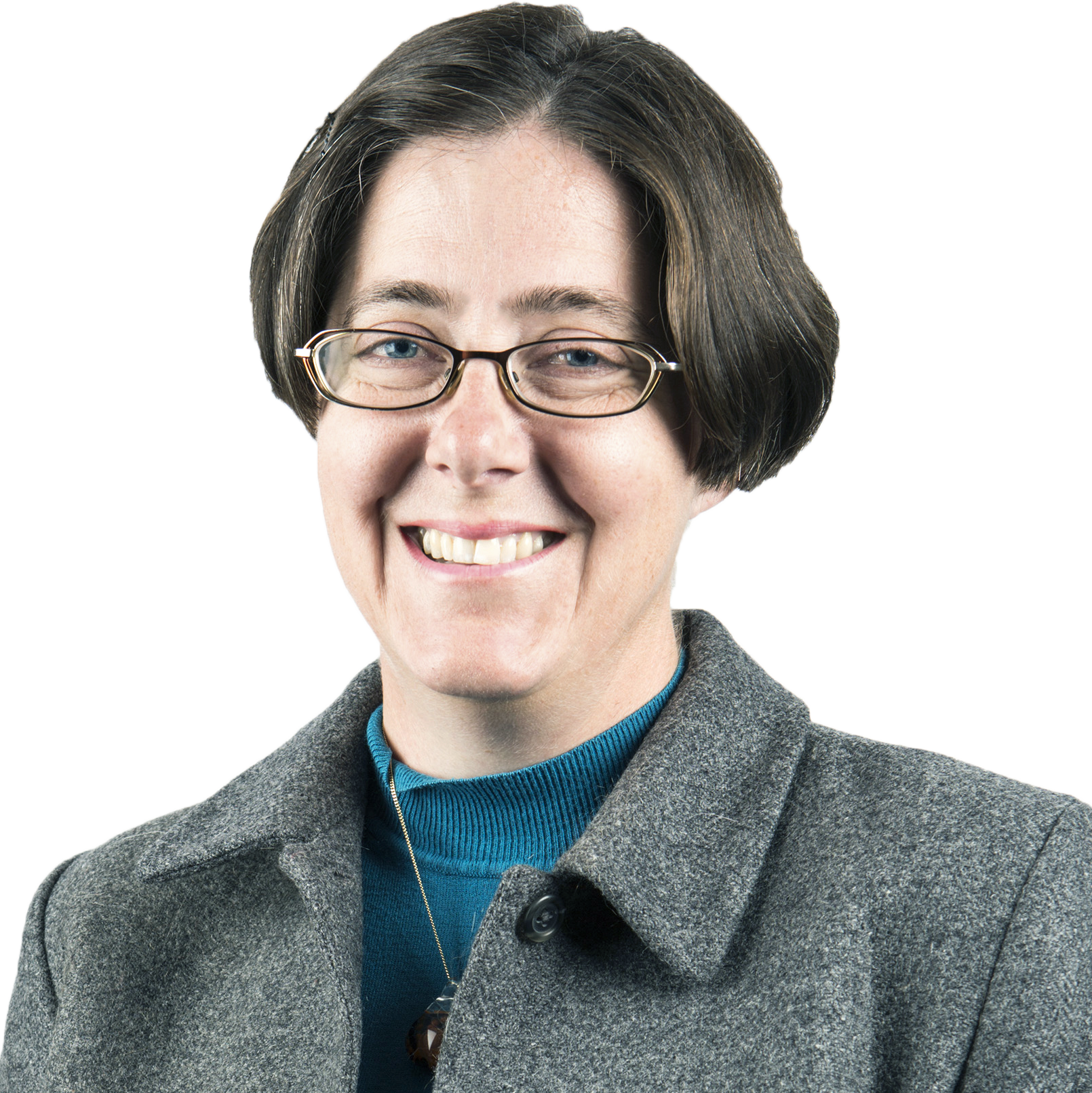
Prof Kami Koldewyn, Professor in Psychology k.koldewyn@bangor.ac.uk
Kami earned a dual BA degree in Music and Philosophy at Pomona College in California. After several years teaching children and adolescents with neurodevelopmental disorders, she returned to graduate school and completed a PhD in Neuroscience at the University of California, Davis. She then spent four years as a postdoctoral researcher at Massachusetts Institute of Technology, working with Nancy Kanwisher. She joined the faculty at Bangor in 2013.
Kami is a Reader in the school of Human and Behavioural Sciences and part of the Social Neuroscience research group in the school.
Her research interests include: The development of social perception and social cognition across the lifespan, Autism Spectrum Disorder and other neurodevelopmental disorders that affect social perception and cognition, and the brain bases of social perception and social cognition.

Dr David Carey, Reader in Psychology d.carey@bangor.ac.uk
Dr Carey is interested in left and right brain hemisphere specialisation for language, reading and face processing, and whether readers with developmental dyslexia show anomalies in this regard, with functional implications for reading ability. Dr Carey is currently a Reader in the School of Human and Behavioural Sciences and is currently accepting applications from PhD students.
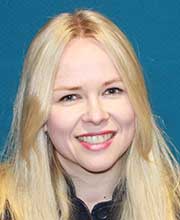
Prof Enlli Thomas, Professor in Education, Associate Pro-Vice Chancellor enlli.thomas@bangor.ac.uk
Enlli Thomas is Director of Research and Impact at the School of Education and Human Development. Her main research interests and expertise span psycholinguistic approaches to the study of bilingual language acquisition, including children’s acquisition of complex structures under conditions of minimal language input, bilingual assessment, and education approaches to language transmission, acquisition and use. She has conducted research and published widely in many areas of language study, including papers on aspects of bilingual acquisition, including impact factors influencing successful L1-L2 acquisition; bilingual transfer; bilingual assessment; bilingual literacy; Executive Function and bilingualism,; socio-economic status and language abilities; and factors influencing language use. She gives regular invited lectures to practitioners and child-care workers both in the education and in the mental health sector on topics relating to language development and bilingualism, and had made regular appearances on tv and radio as an expert informant.
She graduated with a degree in Psychology from Bangor University in 1996 and went on to receive a PhD in Psychology in 2001, which looked at Welsh-speaking children’s acquisition of grammatical gender in Welsh. After completing her PhD, she remained at Bangor to work as a post-doctoral researcher on an ESRC-funded study looking at Welsh-speaking children’s acquisition of mutation, gender, and grammatical categories. During her subsequent years working as a Teaching Associate in the School of Psychology, she was involved as a co-author on a number of successful large-scale research grants, looking at language transmission practices in the home (Welsh Language Board), cognitive effects of bilingualism across the lifespan (ESRC), developing Welsh language assessment tools (Welsh Assembly Government), neuropsychological assessment of bilingual Welsh-English speakers (North Wales Research Committee & West Wales NHS Trust Research and Development Grants Awarding Committee) and bilingualism and dementia (North Wales Research Committee).
Since moving to the School of Education in 2007, she has continued to collaborate on a number of studies including a large-scale grant looking at the impact of bilingualism on patients with Altzheimer’s and Parkinson’s Disease (ESRC), and she was a core member of the Executive of the ESRC Centre for Research on Education in Theory and Practice. At the same time, she has been actively applying her expertise in the education context. Since joining the School of Education, she has led on a number of research projects, including those looking at developing children’s social use of Welsh both within and outside the classroom (Hunaniaith and Welsh Language Board), those exploring the opportunities afforded to L2 children to use Welsh within the classroom (Welsh Government), developing Welsh-language adaptations of standardised measures of linguistic and non-linguistic measures widely used in schools (GL Assessment), evaluating the Premier League Reading Stars Cymru reading programme (National Literacy Trust), and evaluating a family-based programme - The Family Learning Signature - in helping education authorities to improve attainment, attendance and behaviour, particularly with hard to reach families and disengaged learners (Widening Access Funds). She recently co-led on a project funded by the Gwynedd and Anglesey Post-16 Consortia to evaluate the various types of ‘bilingual’ teaching employed across the region and to develop new software to equip institutions to track the use of Welsh and English across the curriculum annually as part of their language planning strategy. The software is now used in all institutions in Gwynedd and Anglesey which provide for post-16 pupils. She is recently co-author of a large-scale ESRC grant (£1.8 million), which is a multi-institution project to develop the first mass corpus to capture and inform the past, present and future use of the Welsh language. She will co-lead on the development and evaluation of a dedicated resource for teachers and learners of Welsh that will result from Corpus as part of the research.She is also the author and co-author of a number of articles and book chapters, and co-author of a standardized tool for measuring children’s receptive vocabulary in Welsh. She recently co-edited a volume entitled “Advances in the Study of Bilingualism”.
Student Members

Simone Calabrich, sml19pvv@bangor.ac.uk
Simone Calabrich is a PhD student in Psychology at Bangor University. She is currently investigating the different processes underpinning acquisition of novel visual-phonological associations in individuals with developmental dyslexia and typical readers. She also works as a data analyst for the Remote Instruction of Literacy and Language project. Simone holds an MSc degree in Clinical Linguistics jointly offered by the Universities of Groningen, Eastern Finland, and Potsdam, and an MA in Applied Linguistics from King’s College London. She has experience with both lab-based and webcam-based eye tracking research, as well as with mouse tracking and electroencephalography (event related potentials).

Catrin Leah Hadden, sepae5@bangor.ac.uk
Ms Catrin Leah Hadden completed her BSc in Psychology and MSc in Psychological Research at Bangor University. Currently, she is a PhD Candidate at Bangor University. Her thesis focuses on the early literacy development among Welsh-English bilingual learners from the earliest stages of reading and spelling acquisition and the early detection of risk of reading disorders among bilingual learners. Ms Hadden for the previous two years, has been a voluntary Project Leader on the ‘Leap into Literacy’ intervention program which is ran by the MDC.
Scientific Committee
Marie Lallier, BCBL Spain
Gwendoline Mahe, CNRS Lille
